When it comes to keeping your home’s air clean, you have many different options concerning filters. One of the best choices you can make is a HEPA filter, but what exactly are HEPA filters? How often do you need to replace them, and are they worth it? Are there any vacuums sporting HEPA filters you should consider for your home?
These are all questions that people have about HEPA filters, and, luckily, the answers are pretty simple and straightforward.
HEPA Filters Basics
First things first, it is essential to understand what, exactly, HEPA filters are. HEPA is an acronym. It stands for “high-efficiency particulate air.”
It is important to note that not just any filter can achieve the “HEPA” designation. To be a genuine HEPA air filter, the filter has to meet government standards put in place by the United States Department of Energy.
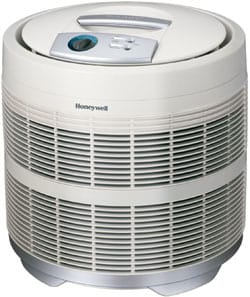
Are You Looking for the Best Air Purifiers?
These filters, under government standards, have to remove at least 99.97% of the tiny particles that pass through them.
Because of the high standards that these filters must meet and because of how high quality they are, they are commonly used in facilities for which air quality is critical, such as hospitals. However, they can and are often used for homes as well. And, with proper care, they can go a long way toward improving the air quality and quality of life in any home.
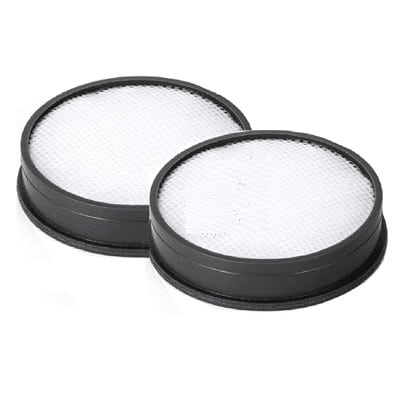
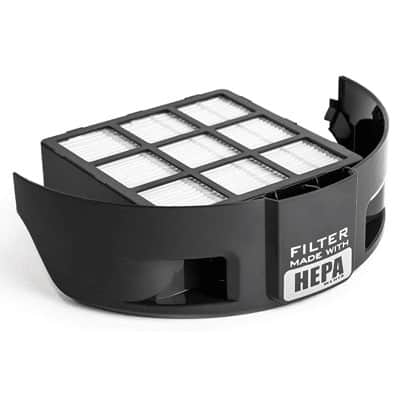
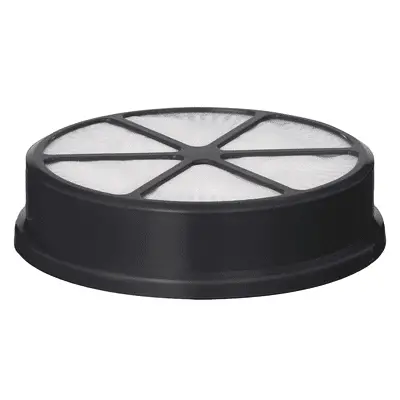
What Are HEPA Filters Made Of?
According to the EPA, efficient filters consist of
coarse glass fibers, coated animal hair, vegetable fibers, synthetic fibers (such as polyester or nylon), synthetic foams, metallic wools, or expanded metals and foils.
To understand better their efficiency, you should know a few things about the removal efficiency of filters. When testing the efficiency of fibrous media air filters, manufacturers use the ASHRAE Standard 52.2. This is a United States standard evaluating the removal efficiency of particles ranging from 0.3 to 10 μm in diameter. The results are expressed on a MERV scale, ranging from 1 to 16.
HEPA-designated home air filters should show a MERV 16 score to consider them efficient and high-quality. Unfortunately, we don’t have a current system to rate residential-grade HEPA filters in home applications. However, the higher the MERV score, the better.
How Often Should You Change Your HEPA Filter?
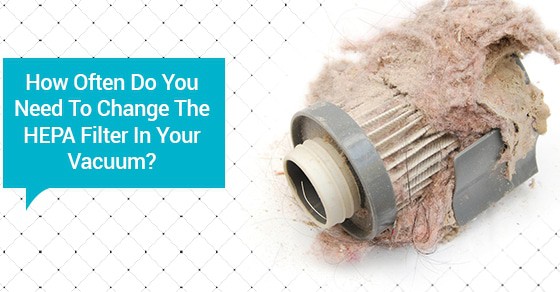
Once you have purchased a HEPA filter, you may have questions about how often you should change it.
It is important to note that different HEPA systems and HEPA-compatible systems will have recommendations about how often to change filters. Thus, you should always follow the instructions for your specific system.

With that said, a good general rule of thumb for most HEPA filters is to change them at least once every six months, mainly if the filter contains carbon.
However, some filters can go for as long as two years without needing to be changed. If you are unsure about how often do HEPA filters need to be replaced, remember that you have nothing to lose by playing it safe and changing your filter at least twice a year.
You can and should also change your filter if you notice any of the “warning signs” that your filter needs to be replaced.
Signs That You Need to Change Your HEPA Filter
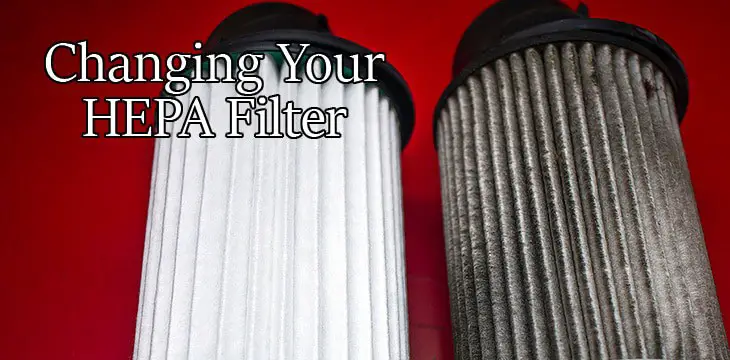
As mentioned, you should always change your filter according to the manufacturer’s instructions. Or, if you’re unsure about the directions for your particular filter, you should change it at least once every six months.
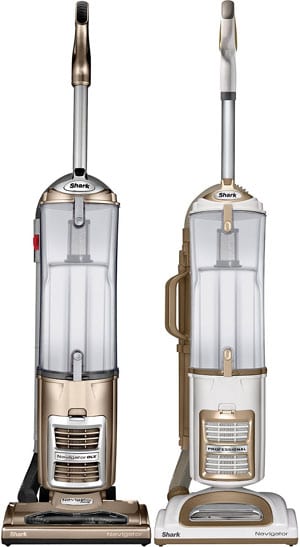
Check Out the Best Vacuum Cleaners with HEPA Filters!
Aside from that advice, though, there are some instances in which you should immediately change your filter. After all, every home is different, and some homes will go through filters more quickly than others, especially if you do things that negatively affect your home’s air quality, such as smoking indoors or having pets.

Looking at your filter, for instance, can be a good indicator that you need to change it.
- If the filter appears gray or just seems dirty, such as having lots of visible dust and debris on it, you will want to go ahead and change it out.
- After all, everything that is on your filter is everything that is circulating through your lungs and the lungs of your family members.
- So, if there is build-up on the filter that you wouldn’t want in your lungs, go ahead and change it out.
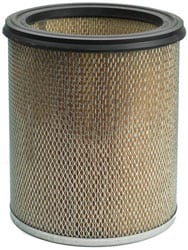
Learn More about HEPA Vacuum Cleaners!
Other Signs You Need to Change Your HEPA Filter
Another indicator that you will want to change your filters is if you notice that your heating or air conditioning functions take a long time to turn on.
You may hear that “whirring” sound when you power up, but if it takes a while for the actual heat or air to come through, this could indicate that your system is dirty and clogged and is, therefore, taking a while to start sending fresh air into your home.
You can eliminate this problem by changing to a clean, new filter.

Allergy flare-ups among your children or other family members may also mean that you need to change your filters. Some people, including those with allergies, are more sensitive to poor air quality and can benefit from having the air filter replaced more often. So, if you or your kids or spouse start sneezing and sniffling more often, it’s a smart idea to change the filter and see if that fixes the problem.
As you can see, it’s pretty easy to keep your filter looking and functioning well. All you have to do, in most cases, is change it out twice a year. And, if that doesn’t work or isn’t often enough, then just look for the warning signs that your filter is in dire need of changing and then change as needed.
HEPA Filters Maintenance
One of the most asked questions when it comes to HEPA filters regards their maintenance: should you wash them or should you change them altogether?
HEPA filters are excellent choices when it comes to removing allergens, dust, and mold spores. However, frequent use can lead to them losing their efficiency when debris clogs them. The problem is simple when it comes to washing them. If their label states that they are “permanent”, then you cannot wash them. Before anything else, read the manufacturer’s instructions and see if there is the term “washable” associated with the filter. If not, refrain from putting the filter under any stream of water.
If the filters are washable, you should gently rinse the filter in water, avoiding damaging the fibers. Make sure you place the filter on a flat surface and allow it to air-dry completely.
The mesh fiber making a HEPA filter is vulnerable to wear and tear so cleaning these filters will inevitably lead to decreased efficiency.
In other words, you should replace them as recommended instead of trying to prolonging their life and damaging them in the process.
HEPA Filters: FAQs
You find HEPA filters on residential, commercial or industrial applications that require air contamination control. From hospitals and homes to vehicle applications, HEPA filters are common. One of the most popular uses of HEPA filtration for individual use is vacuum cleaners, air purifiers, and HVAC systems.
In some residential, industrial or commercial applications, HEPA filters last up to one-two years, depending on their frequency of use. To be safe, we recommend you replace your HEPA filters every six months.
Vacuum cleaners sporting HEPA filters are more expensive but they are worth it. Regular vacuums can release a lot of dust in the air while they clean your carpets and surfaces. If you have young kids or suffer from allergies, COPD, asthma, or other respiratory conditions, a HEPA filter ensures high air quality and better health.
The tell-tale signs that you need to replace your HEPA filter are the following: the filter is visibly dirty or clogged; your appliances take a longer time to function; you hear the whirring sound of appliances when they are on (air conditioning system, vacuum cleaner, etc.); you notice a significant change in the appliances’ efficiency.
Besides purifying your air with the help of particular devices, you can also improve the air quality in your home with these methods:
1. Clean your home frequently (remove dust, debris, pet hair, and odors);
2. Allow fresh air to come in from the outside (unless you live next to a significant source of air pollution);
3. Remove pollution/contamination sources (restrict pets to just a part of the house, restrict smoking in the house, etc.)
Check Out Our Latest Posts!
- What is the Best Vacuum Cleaner?
- Handheld Vacuum Replacement Batteries
- 6 Unexpected Appliances That Use A CR 2032 Battery
- CR2032 vs BR2032 vs LIR2032 Coin Cell Batteries | Side-by-Side Comparison
- How Does A Vacuum Work? Ultimate Guide

With a degree in engineering, Kathryn Hansen loves to write about how things work. Having her own dilemmas on how to pick the best vacuum cleaner for her large family (with a handful of furry four-legged members as well), Kathryn decided to help others in the same situation. After all, vacuum cleaners are critical to a healthy lifestyle and people have a hard time choosing the best one for their needs.

I know that I will need to periodically replace my all in 1 H13 Hepa filter…
In between Can I use my vacuum to clean my Medify Air Cleaner “filter”?
(It is an All in 1 filter.)